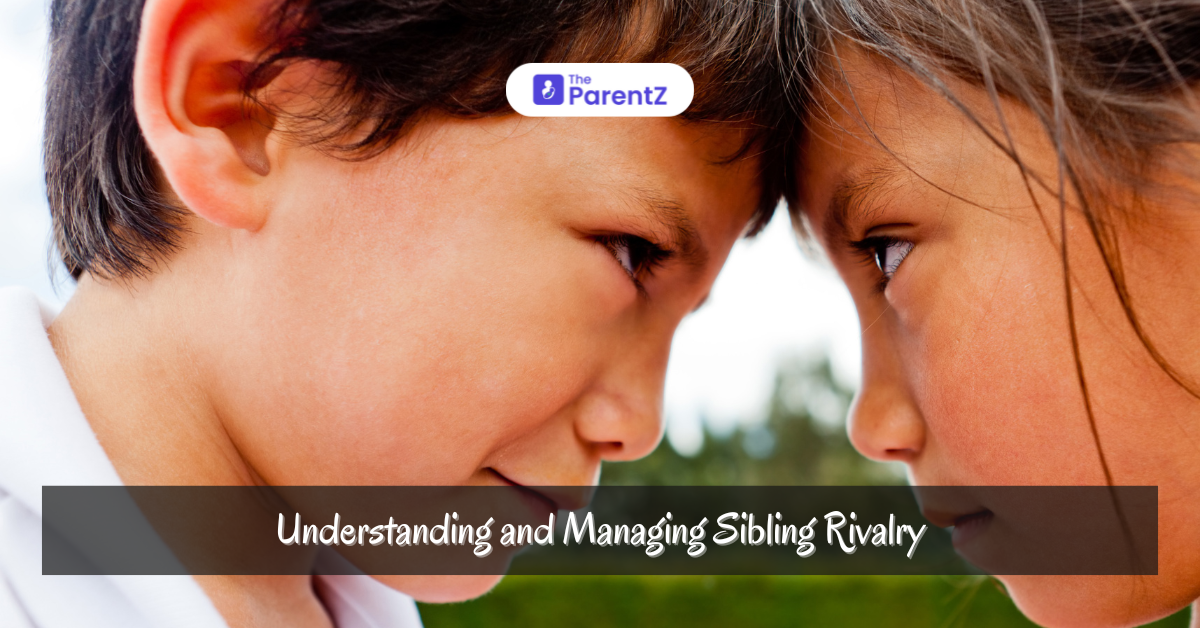Sibling rivalry is a common and often inevitable part of growing up in a family with more than one child. It typically manifests as competition, jealousy, or conflict between siblings, and can range from minor squabbles to more serious disputes. While some degree of rivalry is natural, persistent and unresolved conflict can negatively impact family dynamics and children's emotional well-being. Understanding the root causes of sibling rivalry and learning how to manage it effectively is essential for fostering a harmonious family environment where all children feel valued and supported.
The Roots of Sibling Rivalry
Sibling rivalry is influenced by a variety of factors:
- Age and Developmental Stages: Sibling rivalry often intensifies when there is a small age gap between children. As children go through different developmental stages, their needs, interests, and abilities can vary widely, leading to jealousy and competition.
- Parental Attention: One of the most common triggers for sibling rivalry is competition for parental attention. When children perceive that a sibling is receiving more attention, they may act out to regain their parents' focus.
- Personality Differences: Each child has a unique personality, and these differences can lead to clashes. For example, a more introverted child may feel overwhelmed by a sibling who is extroverted and demanding.
- Parental Comparison: When parents compare their children, even unintentionally, it can fuel rivalry. Children who feel they are constantly being measured against a sibling may develop feelings of inadequacy or resentment.
The Impact of Sibling Rivalry
While sibling rivalry is a normal part of childhood, it can have lasting effects if not managed properly:
- Emotional Distress: Persistent rivalry can cause emotional distress, leading to feelings of anger, frustration, and sadness. This can affect a child's self-esteem and overall emotional development.
- Strained Sibling Relationships: If rivalry is allowed to escalate, it can strain sibling relationships into adulthood. Siblings who constantly compete or argue may struggle to form close bonds later in life.
- Family Tension: Unresolved sibling rivalry can create tension within the entire family, leading to stress and conflict between parents as they try to mediate disputes.
Strategies for Managing Sibling Rivalry
- Set Clear Rules and Expectations: Establishing clear family rules about acceptable behavior can help manage sibling rivalry. Make it clear that physical aggression, name-calling, and other hurtful behaviors are not tolerated. Consistently enforce these rules to create a sense of fairness and security.
- Encourage Positive Interactions: Encourage activities that promote cooperation rather than competition. This could include family games, team sports, or collaborative projects. Celebrating shared successes can help build a positive dynamic between siblings.
- Avoid Comparisons: Refrain from comparing your children, even in subtle ways. Instead of saying, "Why can't you be more like your sister?" focus on each child's unique strengths and praise their individual achievements.
- Teach Conflict Resolution Skills: Equip your children with the tools they need to resolve conflicts on their own. Teach them how to express their feelings calmly, listen to each other, and find mutually acceptable solutions. Role-playing can be a useful technique for practicing these skills.
- Give Each Child Individual Attention: Ensure that each child receives one-on-one time with you. This helps them feel valued as individuals and reduces the need to compete for your attention. Use this time to engage in activities that your child enjoys and to strengthen your bond.
- Address the Root Causes: If sibling rivalry seems to stem from specific issues, such as jealousy over a new sibling or competition for resources, address these root causes directly. Openly discuss these feelings with your children and work together to find solutions.
- Be a Role Model: Children learn how to handle conflict by observing their parents. Model healthy conflict resolution in your own interactions, showing how to disagree respectfully and reach compromises.
When to Seek Professional Help
While most sibling rivalry can be managed at home, there are times when professional help may be necessary:
- Severe Aggression: If sibling rivalry involves frequent physical aggression or emotional bullying, it may be time to seek help from a child psychologist or family therapist.
- Persistent Rivalry: If rivalry persists despite your best efforts to manage it, professional guidance can help uncover underlying issues and provide more targeted strategies.
- Impact on Mental Health: If sibling rivalry is affecting your child's mental health, leading to anxiety, depression, or other emotional issues, it is important to seek professional support.
Conclusion
Sibling rivalry is a natural part of growing up in a family with multiple children. However, with the right strategies, parents can manage rivalry in a way that fosters healthy sibling relationships and a supportive family environment. By setting clear rules, avoiding comparisons, encouraging positive interactions, and teaching conflict resolution skills, parents can help their children navigate sibling rivalry and build strong, lifelong bonds. When necessary, seeking professional help can provide additional support in managing more challenging situations.





Be the first one to comment on this story.